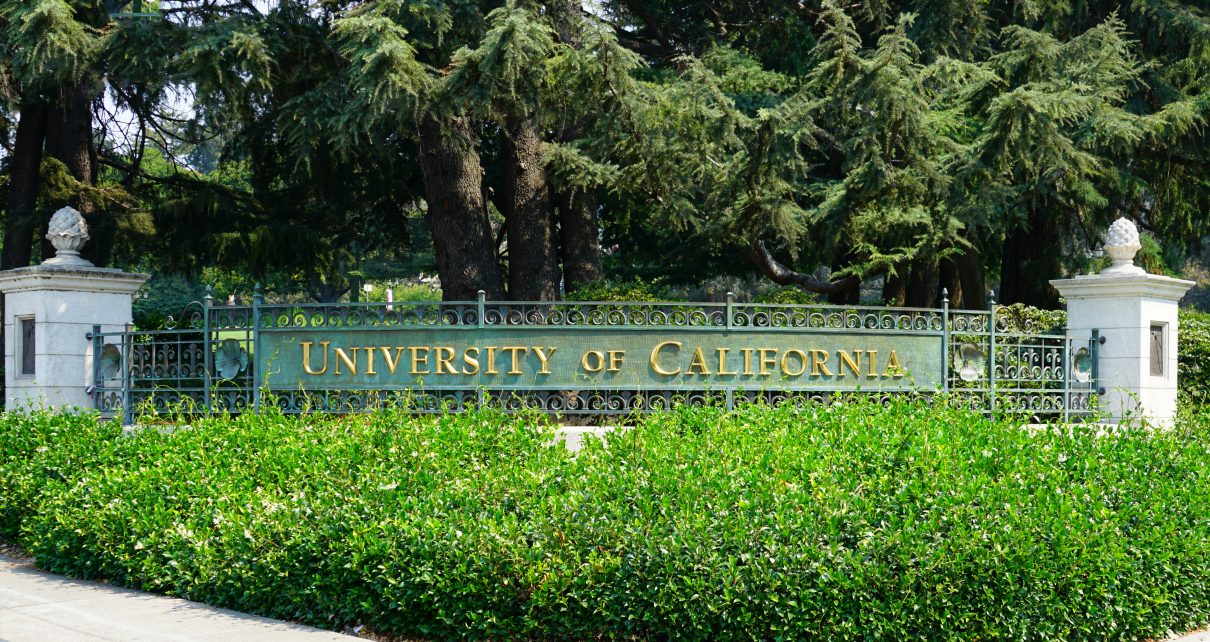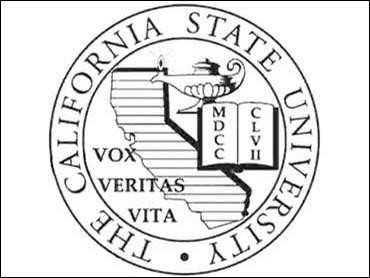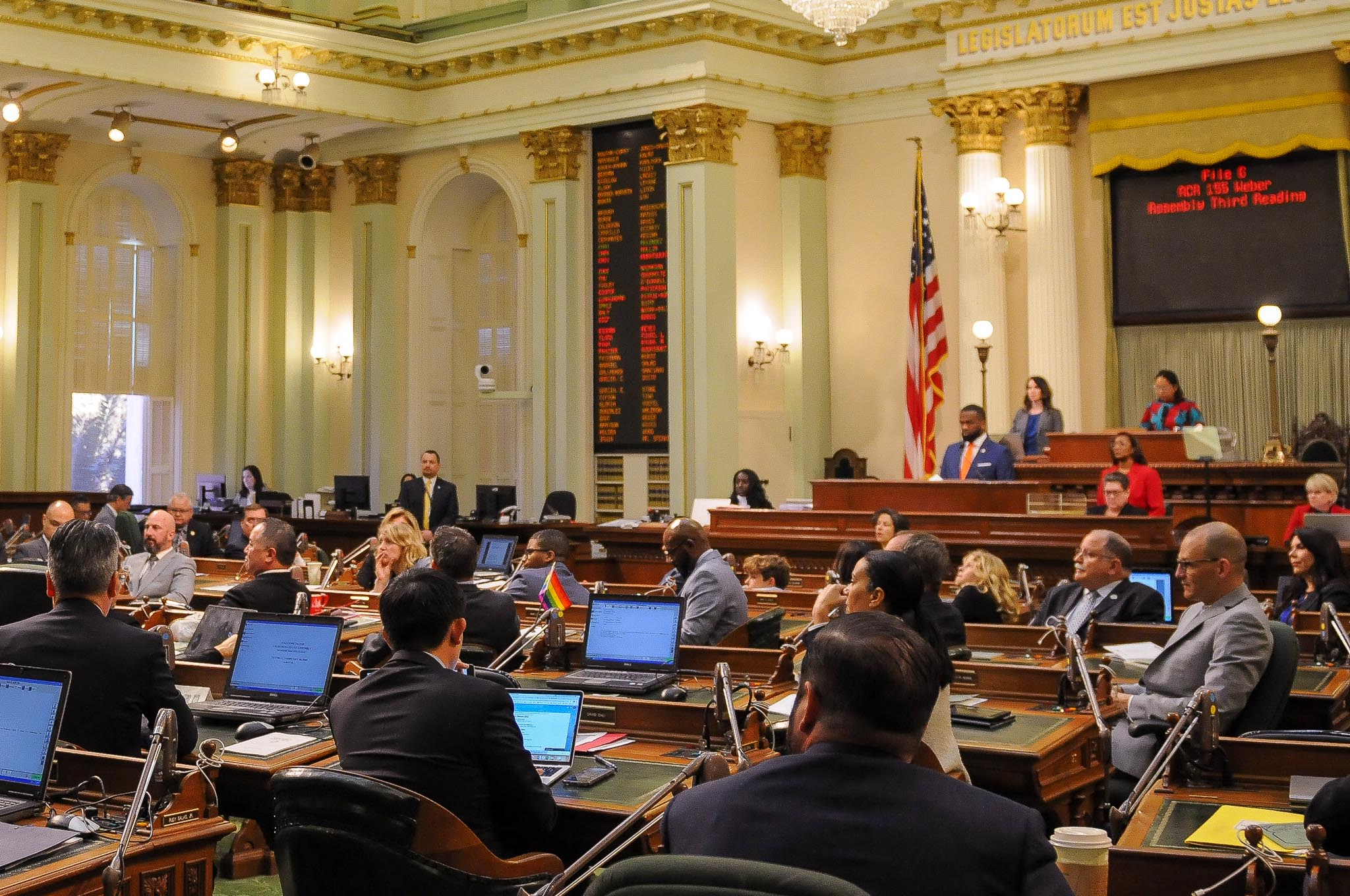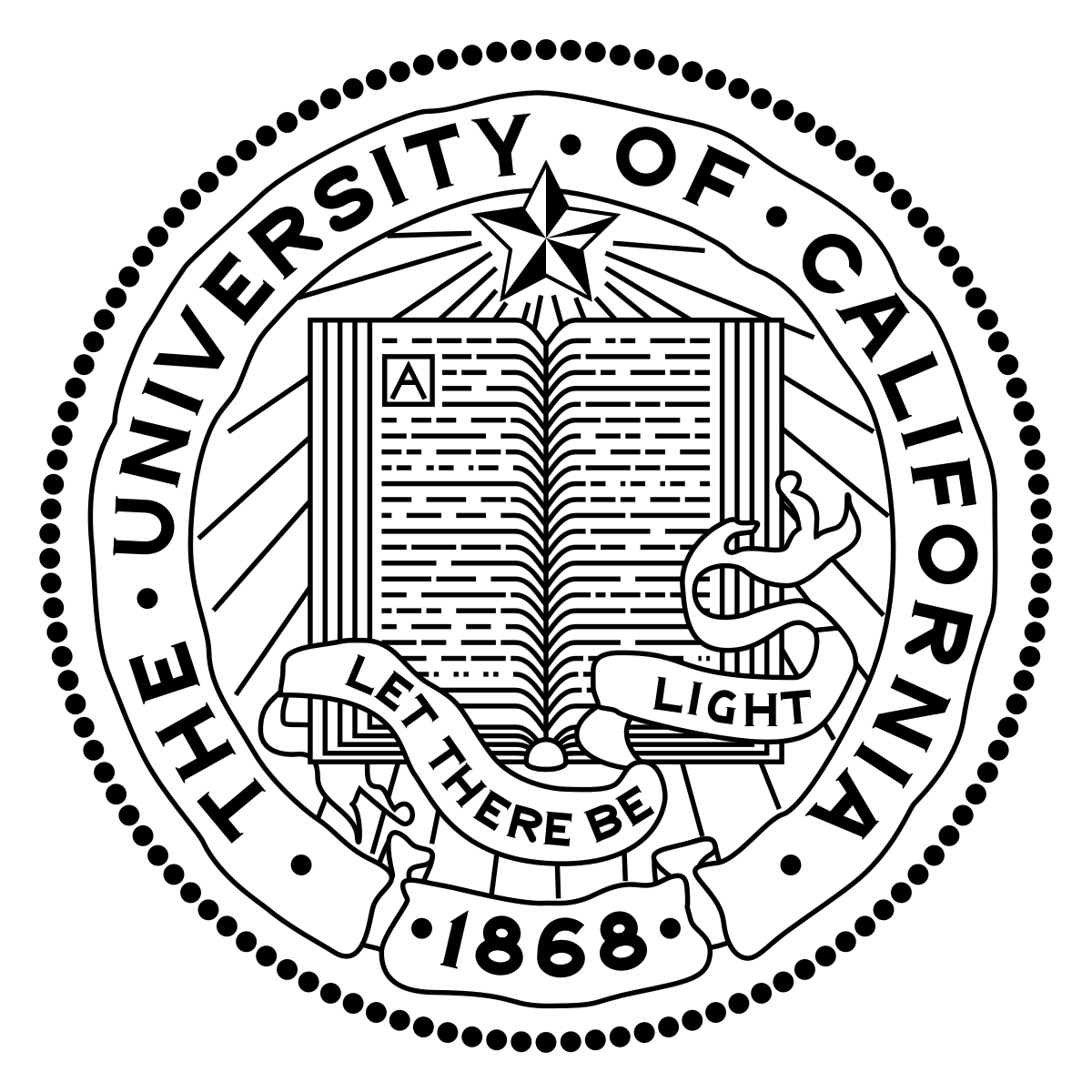
How Does University of California Have a $500M ‘Budget Shortfall’?
California’s public university system is a bloated jobs program – The students are clearly secondary
By Katy Grimes, November 18, 2024 2:55 am
The University of California claims it faces a half-a-billion budget shortfall in its $53.5 Billion total annual budget, while at the same time says its academic buildings, medical centers and dorms need $30 billion in repairs or replacement by 2030.
Oh, and by-the-way, total construction repairs, retrofits and rebuild total… $53 Billion – the same as their annual budget.
What a coincidence.
And to pay for some of this, the UC plans to soak out-of-state undergraduates for more tuition – by another $3,402 next fall or $52,536 in total mandatory tuition. Current new nonresident undergraduates pay $48,636 annually, according to CalMatters.
CalMatters reported Friday:
“The University of California is eyeing a looming budget gap of half a billion dollars next year. To help balance the books it’s relying in part on its out-of-state undergraduates.
Meanwhile, the system is pouring tens of billions of dollars into construction projects for seismic retrofitting, new classrooms and medical centers — while also acknowledging it lacks the funding to build or renovate most of what it needs.”
Seismic retrofitting – a black hole just like “climate change.”
If so many buildings on the UC campuses need seismic retrofitting, why are they still being used? Is this an actual disaster waiting to happen, or a grift for construction projects and building updates, and a way to spend budgeted funding so they don’t have to give it back next year?
For retrofits, it depends on when the buildings were originally built, if they ever were seismically retrofitted, and where they are located (i.e. known earthquake zones: the San Francisco Bay Area, Los Angeles region). But there are no specifics coming from the UC – it’s just a part of their Capital Financial Plan.
However, reading through the UC Capital Financial Plan, this broad statement appears to be the justification:
“California needs to graduate more students who contribute to society by becoming researchers, culturally competent medical professionals, women and minority business owners, and policy and legal experts. In response to these needs, the UC 2030 Capacity Plan proposes the growth of over 23,000 State-supported student full-time equivalents through 2030. Strategic changes to existing buildings, construction of new facilities, and infrastructure improvements are needed to support this growth.”
If you build it, they will come. Is that it?
Because the UC says California needs more competent UC graduates, therefore the figure of 23,000 was decided, therefore they need lots of new construction and renovations?
$53 Billion worth? The same as their entire annual budget?
UC administrators received raises in September: “raises came in two waves: 4.2% for senior UC officials, such as the system president and most campus chancellors, and extra raises, including for most of the chancellors — ranging from 16% to 33%. The extra chancellor raises are paid with private donations, not tuition or state support. The updated chancellor salaries range from $785,000 to nearly $1.2 million. The new UC Berkeley chancellor, Rich Lyons, is paid $946,450, with $200,000 coming from private funds,” CalMatters reported.
This is a government out of control. This is a university system out of control. California needs a DOGE oversight agency to dismantle government bureaucracy, and cut wasteful expenditures.

The University of California claims their enrollment has been growing, and they project continued growth.
How is this possible when California’s K-12 student enrollment is significantly declining – still? “The number of students enrolled in California’s K-12 public schools has dropped by 461,000 students,” SF Gate reports. “Enrollment is expected to drop even further over the next decade, according to the state Department of Finance, to just over 5 million students — a decline of nearly 20% since the peak in the early 2000s.”
Where are these 23,000 UC students going to come from?
The UC Financial Plan document sort-of explains:
The UC 2030 Capacity Plan2 presents two enrollment scenarios: (1) UC proposed plan projects growth of over 23,000 State-supported student full-time equivalents (FTE) and is aligned with goals and proposed funding projected in the Compact with the Governor;3 and (2) UC aspirational plan projects growth of over 33,000 State-supported student FTE and furthers goals identified within the Compact, requiring additional funds beyond funding in the UC proposed plan. State-supported enrollment growth under either scenario is equivalent to growing the size of another UC campus, but available resources do not support the substantial time and investment needed to facilitate this growth. Capital investments are needed to use existing facilities effectively and construct new classrooms, teaching laboratories, and housing to support enrollment growth. Under the UC proposed plan, the University would seek $7 billion in one-time funds and/or General Obligation bond support from the State and identify another $9.5 billion to meet capital needs. Under the UC aspirational plan, the University would seek an additional $2 billion from the State and raise another $3.5 billion.4 The campus chapters include initial information on the response to this important initiative.
The UC system is planning on finding 23,000 to 33,000 more “State-supported students” in order to justify al of their planned building projects, seismic retrofits, and expansion plans. And more money – taxpayer money.
The corresponding footnotes and links are below clearly showing collusion between the governor’s office and the UC System.
Particularly concerning is “The Multi-year Compact Between the Newsom Administration and the University of California.” That document is rich with non-educational-related plans such as:
“The [Newsom] Administration and the University share the following goals to improve student success and advance equity:
- Establishing an aspirational target to eliminate gaps between overall four-year freshman graduation rates and those of low-income (Pell-eligible), and underrepresented groups by 2029-30. The intermediate goal is to reduce current gaps by 50 percent by the end of the 2025-26 academic year. Increasing the overall systemwide four-year freshman graduation rate to 76 percent and the two-year transfer graduation rate to 70 percent by 2029-30.
- Establishing an aspirational goal of offering every UC undergraduate a pathway for debt-free education by 2029-30.
- UC will fully participate in the implementation of the Cradle-to-Career Data System, including support for the System’s proposed California College
Guidance Initiative (CCGI) operating tool.
Notably, the UC System wants to improve graduation rates, overall currently at 72%, and 2-year transfer students rates which are currently at 64%.
And, are they just going to “lift” or “gift” the low-income students to graduation?

“According to estimates from the California Student Aid Commission, annual state costs associated with covering cohort-based tuition increases for the Cal Grant program will grow from $15 million in 2022-23 to $200.8 million in 2026-27.” (taxpayer funded, emphasis CA Globe)
- The 2022-23 Governor’s Budget also provides:
* $185 million one-time General Fund for the following climate initiatives:
* $100 million for climate action research seed and matching grants available to researchers from the UC system and other institutions.
* $50 million for regional climate innovation incubators.
* $35 million to establish climate workforce development and training hubs co-located with the regional climate innovation incubators.
The UC system, a state university system funded by California taxpayers, is not only proposing more financial aid (also taxpayer funded) for students, they are increasing the CalGrant program more than 13x times – $15M to $200M. Do you recall voting for this? Or did any of your elected Assembly members or state Senators promise this growth while campaigning?
The tuition cost to attend University of California at Merced is $6,878.68 per semester – not including housing costs, totaling $13,757.36. Add in housing and UC Merced estimates an annual cost of $37,100 off campus to $44,010 on campus.
UC Berkeley is $10,550 per semester, $21,100 total.
UCLA is $13,225 per semester, totaling $26,450 in annual tuition. Adding $15,816 for housing and the grand total is $34,667.
UC Riverside is $5,998 quarterly – just tuition, for $23,992 in annual tuition.
To attend UCLA in 1980, the cost was $143 per quarter. With fees included, it ran about $1,012 to attend UCLA in 1980 – also taxpayer funded.
Today, at $13,225, the increase to attend state-funded UCLA far exceeds the inflation rate. This is government bloat with the ever expanding highly-paid administrative class; this is government scheming with government student loan programs for degrees that do not justify the loan; it is government at its worst – and with a poor graduation rate.
This is no longer about education – California’s public university system is a bloated jobs program for state workers . The students are clearly secondary.
1 “Fall enrollment at a glance.” UC System. Info Center. https://www.universityofcalifornia.edu/about-us/information-center/fall-
enrollment-glance, September 2023.
2 University of California 2030 Capacity Plan, https://regents.universityofcalifornia.edu/regmeet/july22/b5attach2.pdf
3 The Multi-year Compact Between the Newsom Administration and the University of California, May 2022, https://dof.ca.gov/wp-
content/uploads/Programs/Education/UC-Compact-May-2022.pdf.
4 July 21, 2022: item B5, Discussion Item, Presentation of the UC 2030 Capacity Plan, https://regents.universityofcalifornia.edu/regmeet/july22/b5.pdf
- Could President Trump End the Income Tax? - February 26, 2026
- Trump State of the Union: Democrats Showed They’re Not On the Side of The American People - February 25, 2026
- Leaving California: Public Storage Relocates HQ from California to Texas - February 25, 2026





That is because they stole the money and misspent the rest. The administration and the president are criminals and are extremely corrupt, just like most Democrats.
Very stringent earthquake requirement put in place for public schools back in the 1930’s and they are surveyed for conformance every few years – all part of some state government agency. Primarily for K-12, but community colleges too. Why not also in place for CSU and UC?
All construction since that time are subject to far higher standards than regular buildings. K-12 had to remain standing. CCC had to remain standing long enough for people to get out. UC and CSU – ??????
I smell the greed of the school construction industry and the educational bond industrial complex in this, But mainly I smell the capitulation to the educational complex unions who always whine …you care more about buildings than you do people and our morale is bad – give US ore money and make state residents pay for everything else. This plays out in every single school district, endlessly.
Clean up your own books UC, and just say NO to the rapacious education employee unions.
Let’s start with a shortfall that is 1% of the budget. Is that the crisis that is painted by this article. I’d have a lot more confidence that the facts presented by Ms. Grimes were accurate, but talking about UCLA “semesters” and doesn’t give me much confidence. Only two UC campuses use semesters: Merced and Berkeley. I also wonder where she found the information for in-state tuition. All nine undergraduate campuses have annual tuitions that are within a few hundred dollars of each other. There is a story here, but no the one that has been written.
Written like someone who has a stake in the UC bloat and $$spoils$$, provided for the taking by Californians, as described in the article.
Bob, where are you getting your numbers on university fees? They are not within a few hundred dollars of each other. They are thousands of dollars apart.
UCLA all university fees including tuition: $15,164
https://admission.ucla.edu/tuition-aid/tuition-fees
UC Berkeley all university fees including tuition: $10,551
https://registrar.berkeley.edu/tuition-fees-residency/tuition-fees/fee-schedule/
It’s right there on their webpages.
Another thing that needs to be done is make colleges and universities responsable for student loan debt repayment, starting with tying it to chancelor compensation and taking it out of their budget.
That way maybe they will promote education that actually translates into jobs that pay a living wage, and they might cut some of the freak show classes that are only good for turning out cry babies and clueless activists
Unless I missed it, the UC system has a healthy $29 billion endowment. Isn’t that way more than enough to cover the half billion shortfall next year.
strange to forecast this growth in the UC system.
Just read an article that enrollment at San Francisco State University has fallen sharply. Dropping 8,000 in enrollment since 2018. Yes, its a different system that UC – but if there is so much demand for college degrees, why would this be happening.
Katy Grimes is right that California’s public university system has become a bloated jobs program for state workers but it’s also a system for imposing Marxist indoctrination and brainwashing.
$53.5 Billion total annual budget, to produce Marxists who can’t read or write but yell racism all the time. That’s impressive. There are people who can do the same for $50.
My tuition at USC was 4400 75-76
Note that UC depends on out-of-state tuition to make up shortfall. Since enrollment is capped, this means California students are squeezed out. Is this fair? At University of North Carolina, 82% of students must be in-state. The Legislature should set a similar minimum for UC.
The UC system can easily find billions of dollars for their projects if they cut out all the nonsense classes/professors. Ethnic studies, women’s studies, etc. Not one person is hired for a reputable job with those degrees. Of course there are the DEI and CRT positions, but they are quickly going the way of the Dodo Bird, thankfully!
ALL of this ridiculous spending should stop!